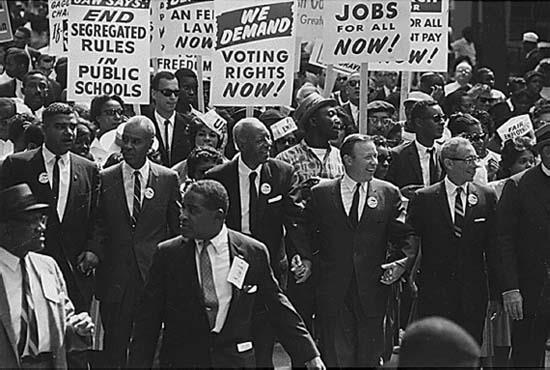Business and CommerceLabor Unions |
What was the Brotherhood of Sleeping Car Porters? |
A. Philip Randolph (1889–1979) founded the Brotherhood of Sleeping Car Porters on August 25, 1925, the first major nationwide black union. It would take ten years of struggle and new federal labor legislation before the union established a collective bargaining agreement with the Pullman Palace Car Company. Thus the union became the first official bargaining agent for black Pullman workers on October 1, 1935. Randolph became active in civil rights as well. He used the power and reputation gained from his work with the Brotherhood of Sleeping Car Porters to call for a March on Washington in 1942. This planned protest against the government’s indifference to the war efforts and black rights led to advances in civil and economic rights for blacks. In 1957 Randolph became a vice president of the American Federation of Labor and Congress of Industrial Organizations (AFL-CIO), representing the Pullman porters; he served until 1968. Randolph was born in Crescent City, Florida. He graduated from Cookman Institute (now Bethune Cookman University) in Jacksonville in 1907 and held several shortlived jobs. In 1912 he enrolled in City College in New York where he associated with student radicals and adopted a belief in socialism. From 1918 until 1927 Randolph served as editor of the Messenger, a magazine geared to radical groups. He is regarded as one of the most important labor leaders of his time.

A. Philip Randolph, founder of the Brotherhood of Sleeping Car Porters, is seen in this photo from the 1963 March on Washington in the center, front row. At far left of the front row is Whitney M. Young Jr., executive director of the National Urban League, and Roy Wilkins, executive secretary of the NAACP. On the right are Walter P. Reuther, President of the UAW, and Arnold Aronson, the secretary of the Leadership Conference on Civil Rights.
